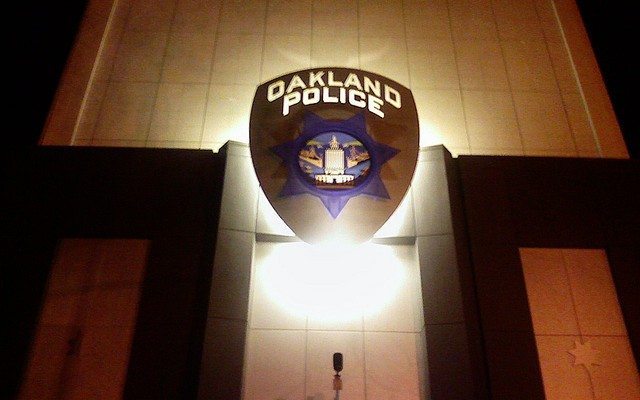
Crime
What’s New: Police Brutality is the Norm in Oakland
Recently, an independent investigation into 22 years worth of court filings revealed a history of misconduct by the Oakland Police Department. Among the findings is the conclusion that the police department spent $74 million in civil rights lawsuit settlements, as well as an emerging trend of brutality among decorated officers.
Oakland Police Beat is a project created by Oakland Local, which provides an unprecedented look at police department records and statistics about the history of the Oakland Police Department. The research was conducted by a small team of journalists and interns, who seek to improve transparency in the local police force as well as reveal historical trends using publicly available statistics and court records. The site is funded by The Ethics and Excellence in Journalism Foundation and the Fund for Investigative Journalism.
The most notable finding revealed by Oakland Police Beat so far concluded that the city has spent a considerable amount of money for settlements on civil rights cases. According to their research, the Oakland Police department spent $74 million on settlements for at least 417 cases involving misconduct, brutality, and civil rights violations. They also note that Oakland ranks third amongst California cities (that make data publicly available) for highest settlement payouts.
The project also identified an alarming trend among Oakland’s decorated police officers. Oakland Police Beat found that 40 percent of the 35 most decorated officers were part of one or more officer-involved shootings- a total 29 shootings. Of the same group of officers, 61 percent were named in civil rights lawsuits, 14 of which were in two or more cases. Finally, at least four of the 35 most decorated officers were involved in the police response of the Occupy Oakland protests of 2011 and 2012. Oakland Police Beat notes that this response “used chemical agents as well as beanbag and explosive projectiles during violent clashes.” The city has already spent over $6 million in settling lawsuits related to these incidents.
Oakland Police Beat went through 1,368 lawsuits and complaints that were filed from Jan. 1, 1990 to Jan. 1, 2013. They focused on settled cases, which they found represented roughly 75 percent of the cases filed against the OPD. Using public records the organization was able to identify how many cases were civil rights related and then used those as the basis for their conclusions.
Although anyone can file a lawsuit against the police department, Oakland Police Beat noticed that over 100 cases were dismissed by the court. However, the remaining 417 civil rights cases that were settled outside of court represent instances that the police department determined were substantive enough to deal with. Alex Kats, the City Attorney’s Chief of Staff, told Oakland Police Beat that expected costs are often an important factor in deciding to settle a case. The city will typically settle out of court if they foresee that the costs of litigation or a judgment are higher than settlement. This course of action also does not require the police department to admit fault. It is important to note that in settled cases, there must typically be some legitimate claim made to prevent it from being thrown out by the court.
Why Oakland?
In addition to being ranked by Law Street as the second most dangerous city over 200,000, the Oakland police department has faced issues with its officer’s use of force in the past. The issue first came about with “the Riders” scandal in 2000, where a group of officers were alleged to have planted evidence and excessively beat suspects which sparked an investigation into the police force. Although after two mistrials, prosecutors decided not to attempt a third criminal trial, the civil suit marked a very important settlement.
The terms of the settlement agreement required Oakland to pay out nearly $11 million to the plaintiffs, implement 51 reforms to the police department, including new guidelines for officer’s use of force, as well as dismiss the three accused officers from the police force. Despite settling in 2003, the city has not yet complied with the full terms of the agreement and currently faces problems managing its crime levels.
Oakland Police Beat’s in-depth research into the Oakland Police Department reveal several startling conclusions about police brutality and civil rights cases, and will continue release further findings over the next several weeks. The project marks an never before seen look into Oakland’s historically troubled police force, and provides further understanding as to why Oakland is ranked the third most dangerous city in America.
—
Kevin Rizzo (@kevinrizzo10)
Featured Image Courtesy of [Flickr/Gregory Veen]








Comments